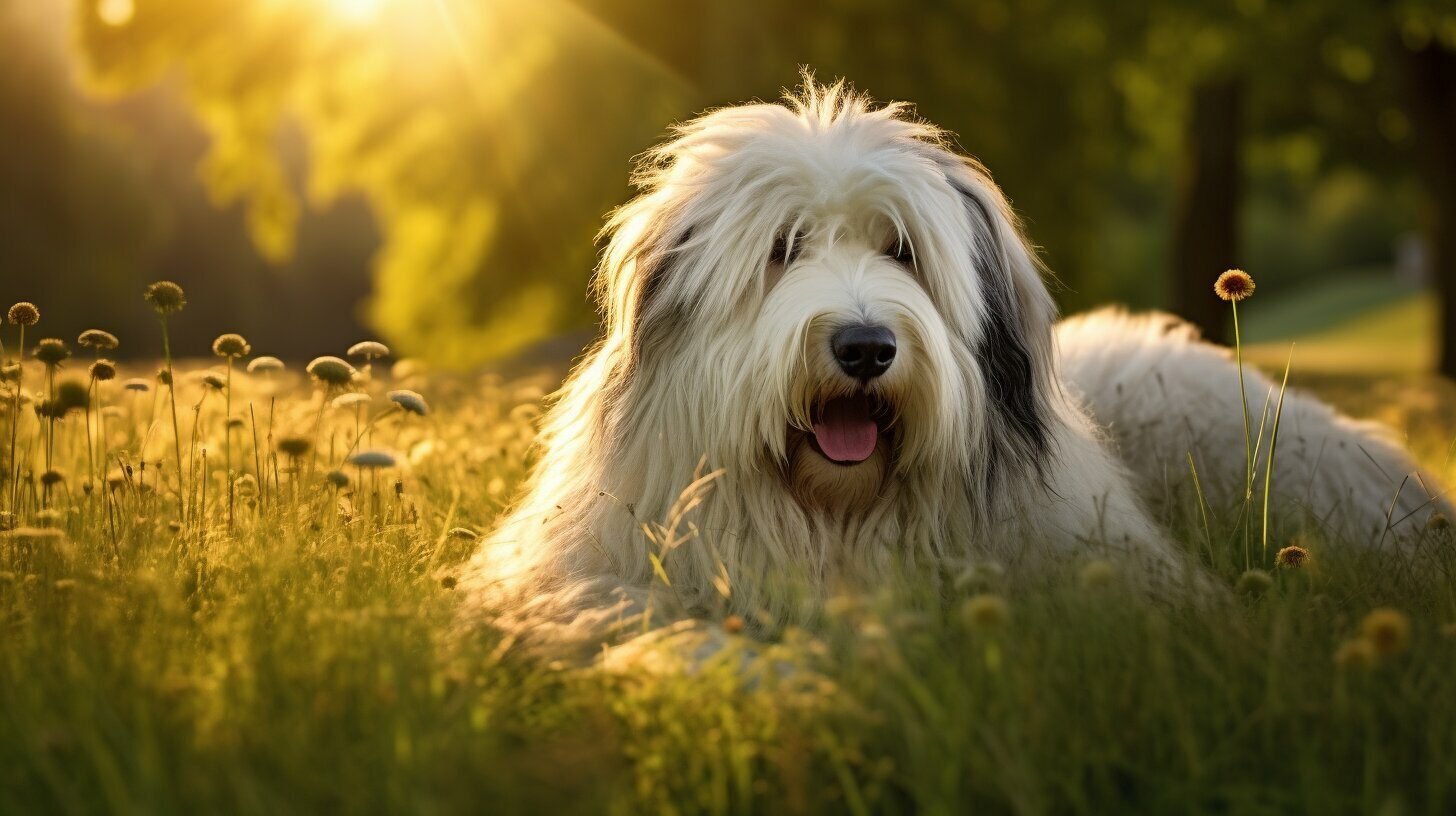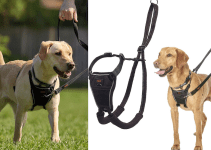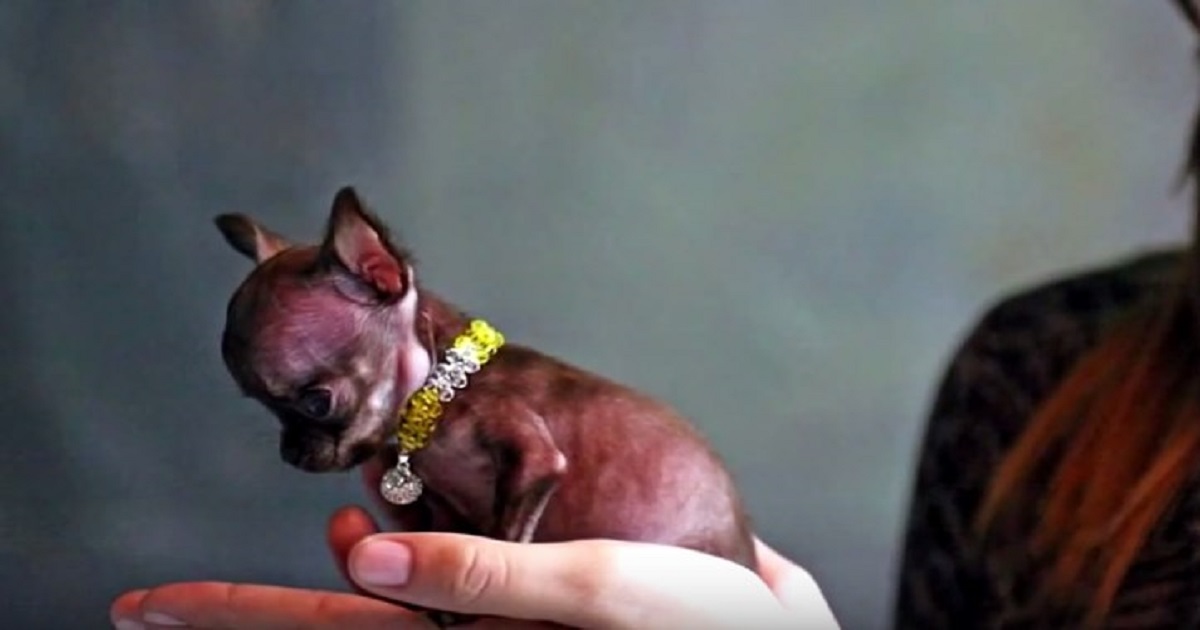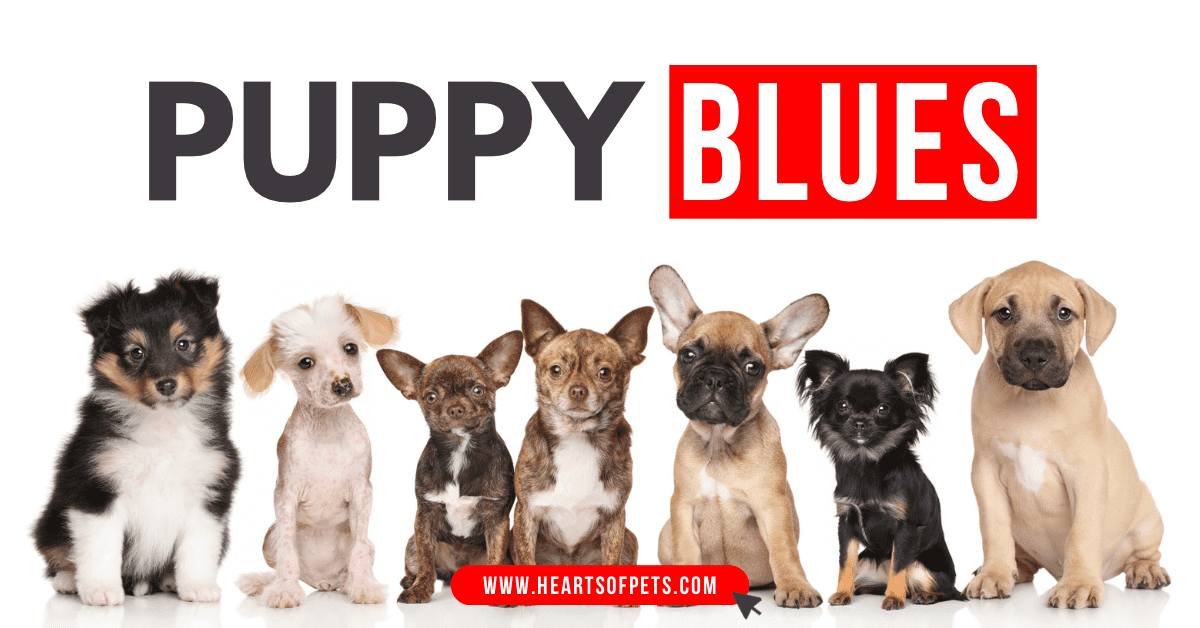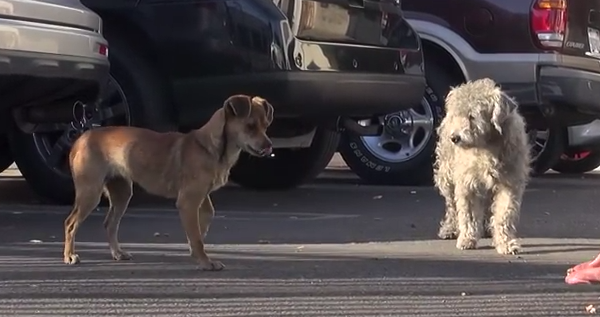Are you considering a Cowboy Corgi for your next pet? As one of the market’s most unique and charming hybrid breeds, the Cowboy Corgi will bring joy and companionship to any family. But before making such an important decision, it’s wise to understand everything that goes into taking care of them.
From their dietary needs to their energy levels, this article is designed to give you a comprehensive look at how owning a Cowboy Corgi can be rewarding and manageable! With our help, you’ll quickly become an expert on one of the cutest dogs.
Cowboy Corgi
Cowboy Corgis are a relatively new breed of dog that combines Welsh corgi and Australian cattle dog characteristics. This hybrid breed has become popular with pet owners due to its intelligence, trainability, and companionability.
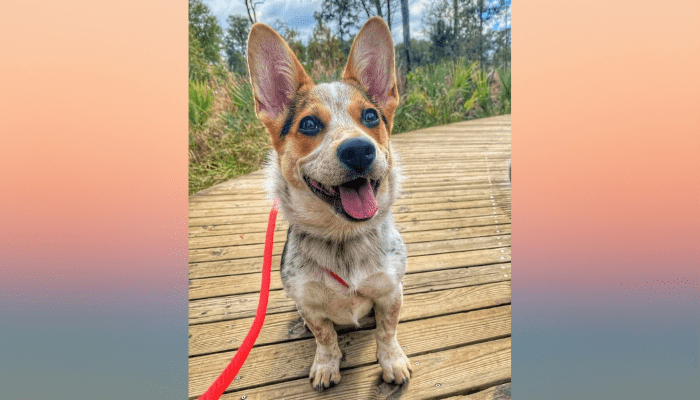
History of Cowboy Corgi
The term “Cowboy Corgi” was coined by ranchers in Texas who wanted to create ideal herding dogs. This combination of two breeds—the Pembroke Welsh Corgi and the Australian cattle dog—was chosen for their complementary traits, such as intelligence and loyalty. The first recorded crossbreed between these two breeds was in 1988 when the late Dr. Bob Whitney crossed the full-blooded Pembroke Welsh corgis with his half-cattle dogs. Since then, more and more people have been interested in owning this unique hybrid pup.
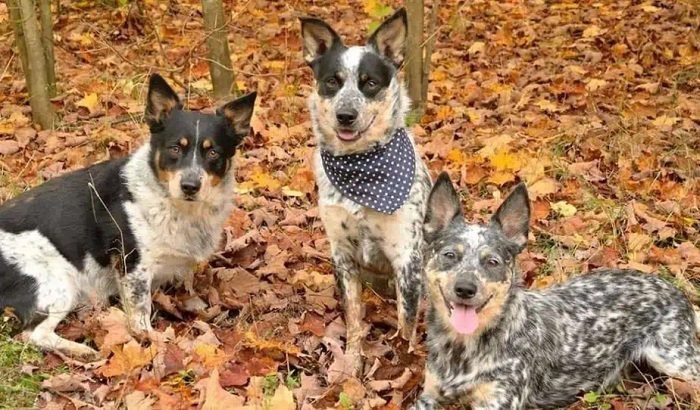
Physical Appearance of Cowboy Corgi
Size, Height, and Weight of Cowboy Corgi
The Cowboy Corgi is a medium-sized dog that typically weighs between 25 and 35 pounds. It has a life expectancy of 12–15 years. When it comes to height, most Cowboy Corgis measure between 10 inches and 15 inches tall at their shoulders when standing on all fours.
Coat Colors of Cowboy Corgi
The coat colors of the Cowboy Corgi vary greatly depending on which parent breed they take after more closely. Generally speaking, these dogs can have black or red coats with white markings. Some might also have tan points or patches, brindle stripes, or ticking on their fur. There are no set standards for their coat colors, so each one is unique.
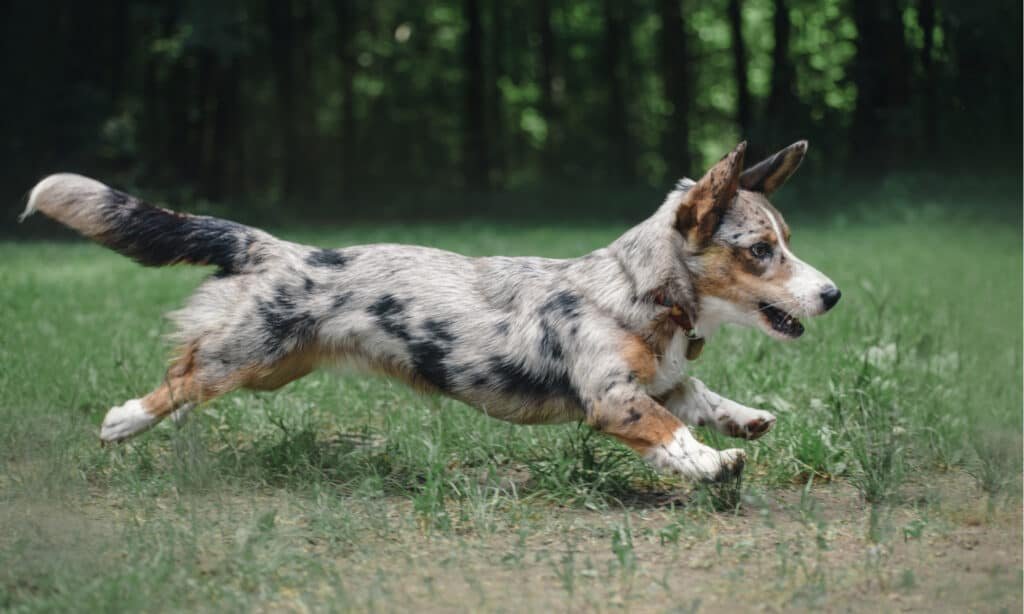
Cowboy Corgi’s Temperament and Personality
Personality Traits
Cowboy corgis are known for being social, intelligent, and outgoing. They love interacting with people and can be quite talkative when excited. They can learn new tricks quickly, meaning you’ll have a well-trained pup in no time! Additionally, they are renowned for being very loyal to their owners and will typically stay by their side as much as possible.
These pups don’t require nearly as much exercise as other breeds regarding energy levels. They’re content with short walks or playing in the backyard for a few minutes each day. However, it’s important to remember that too little activity can lead to undesirable behaviors such as barking or digging. As long as you give them plenty of playtime and mental stimulation opportunities, your cowboy corgi should be perfectly happy!
Temperament
Cowboy corgis are known for having excellent temperaments; they usually greet people with enthusiasm rather than aggression or fearfulness. This makes them ideal family pets since even young children can easily handle them. Additionally, these dogs do not shed excessively, making them great housemates since they won’t need to vacuum every day! Finally, cowboy corgis tend to get along well with other animals, so if you already have another pet in your home, this should not be an issue.
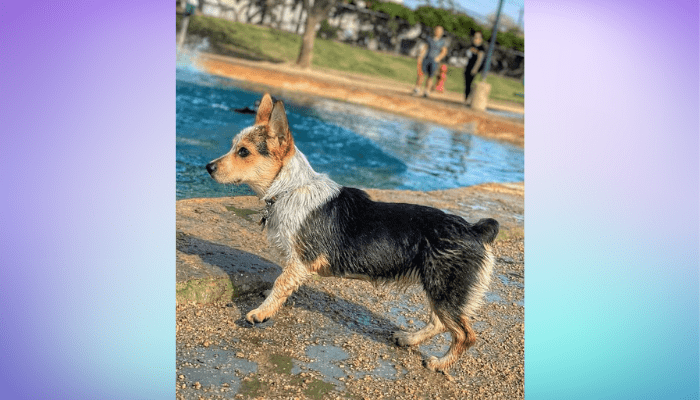
Are Cowboy Corgis Aggressive?
No, Cowboy Corgis are not inherently aggressive. On the contrary, they tend to be quite friendly and affectionate with both people and other animals. In addition, they are usually very intelligent and eager to please, making them relatively easy to train. Of course, as with any pet breed, some individuals may have more aggression than others due to genetics or environmental factors; however, this doesn’t mean that all Cowboy Corgis are aggressive.
Do Cowboy Corgis Get Along With Other Pets?
The short answer is yes! Though it’s important to remember that every dog is an individual and can react differently based on their upbringing, environment, and experiences. However, Cowboy Corgis are generally friendly and social when it comes to getting along with other animals—especially if they’ve been socialized from an early age.
They do very well with cats, in particular. However, they can sometimes have issues with other dogs due to their strong herding instinct. Therefore, if you have another pet—especially another dog—it’s best to introduce them slowly and under supervision so as not to cause any conflict between them.
Is Cowboy Corgi Good With Kids?
Yes! Cowboy Corgis are great with kids as long as they’re properly socialized from a young age. They make excellent companions for children of all ages! Like any dog breed, it’s essential to teach kids how to interact correctly with their canine companions; this includes teaching them how to handle the dog gently and calmly and not roughhousing or playing too roughly with them.
It’s also important for kids to understand that dogs need their space just like humans sometimes do; if the dog appears overwhelmed or uncomfortable in any way, it’s best for everyone involved if the child leaves the room until the pup has calmed down again.
Are They Good as Family Pets?
Absolutely! As mentioned earlier, Cowboy Corgis are incredibly friendly and social when raised correctly; this makes them excellent family pets who will fit right into your home without difficulty! But, of course, they’re brilliant, too, so they’ll learn commands quickly and stay obedient most of the time—make sure you’re consistent in training so that everyone knows what is expected of them (both human and canine alike!).
Also, remember that because they were originally bred for herding livestock, these dogs may have an innate desire to herd people around, so you’ll want to nip this behavior in the bud early on by reinforcing proper boundaries between man and pup.
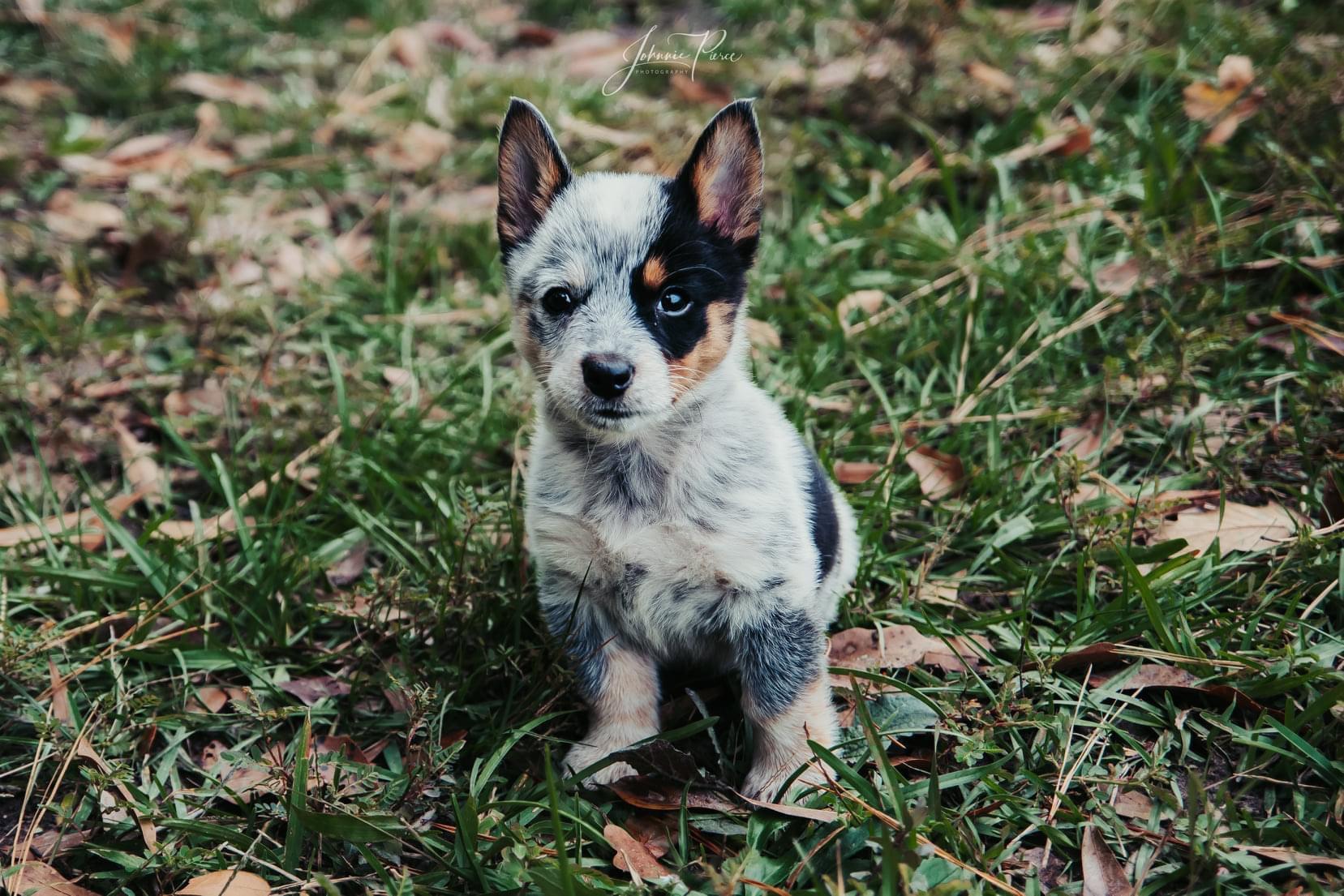
Working Qualities of Cowboy Corgi
Cowboy Corgis were bred to combine the cattle-herding skills of a Welsh Corgi with the hardworking drive of an Australian Heeler. As such, corgis and Australian cattle still carry their herding instincts in their genetic makeup. When training your Cowboy Corgi, you must consider these instincts and use positive reinforcement techniques to keep your pup from trying to herd you or other animals.
Training Cowboy Corgi
When it comes to training your cowboy corgi, positive reinforcement is vital. Rewards such as treats or verbal praise can motivate your dog during training sessions. Repetition is also necessary – once your dog has learned a command, you need to reinforce it with regular practice so that it becomes a habit for them. Finally, as with any breed of dog, consistency is essential when training your cowboy corgi; you must ensure that everyone who interacts with the dog follows the same rules and commands.
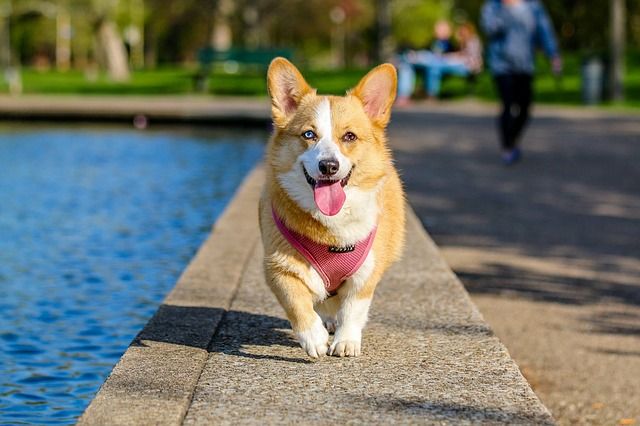
Exercise Requirement of Cowboy Corgi
The amount of exercise your Cowboy Corgi and Australian Cattle Dogs require will depend on age, size, and overall health. Generally speaking, adult Cowboy Corgis need at least one hour of moderate to intense exercise every day. Puppies should get 30 minutes of daily activity in smaller daily sessions. It is important to note that if you have an older or injured dog, they may only be able to handle 15 minutes of exercise per day.
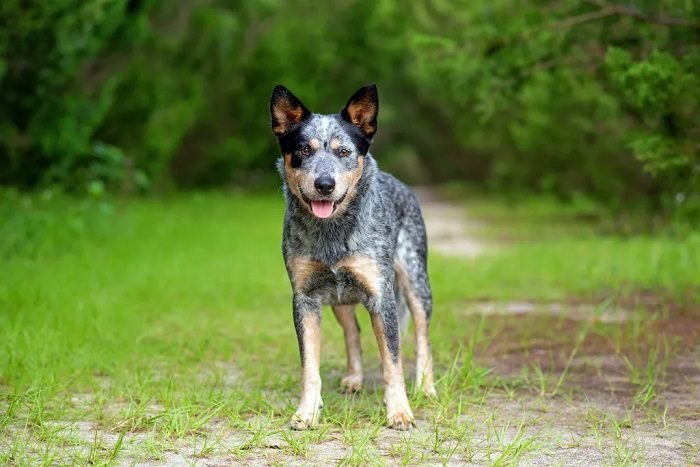
Grooming of Cowboy Corgi
Brush Your Dog Regularly
Cowboy Corgis have double coats and shed a lot, so it’s essential to brush them regularly with a slicker brush or a pin brush at least once or twice per week. This will help remove dead fur and prevent mats from forming in their coat. If you notice any mats, work through them gently with your fingers before brushing them out.
Bathe Your Dog as Needed
Cowboy Corgis can be bathed infrequently; once every six weeks is sufficient for most dogs. When you wash your pup, use warm water and a mild shampoo specially formulated for dogs that won’t dry out their skin or strip away natural oils from their coat. Be sure to rinse off all the soap, so it doesn’t irritate their skin later.
Trim Their Nails Regularly
It’s also essential to trim your dog’s nails regularly – at least once every three months – so they don’t become overgrown and uncomfortable for your pup to walk on. Use special clippers designed specifically for dogs, which are available at pet stores or online retailers.
Start by trimming just the tips of their nails and avoid cutting into the quick (the pink part visible near the base of the nail). If you accidentally cut quickly while trimming your dog’s nails, apply styptic powder immediately to stop any bleeding.
Are They Hypoallergenic?
Cowboy Corgis are not hypoallergenic, but they are low-shedding. This means that they do not shed as much as other dogs, but they still shed enough to cause allergies in people who are sensitive to dog dander. If you have allergies, spending time with a Cowboy Corgi is essential before you commit to owning one. This will help you determine if you are allergic to them or not.
In addition to causing allergies, shedding can also be a nuisance. A Cowboy Corgi may not be the right breed for you if you don’t want dog hair all over your house. They need to be brushed regularly to remove loose hair, and they will also benefit from occasional baths.
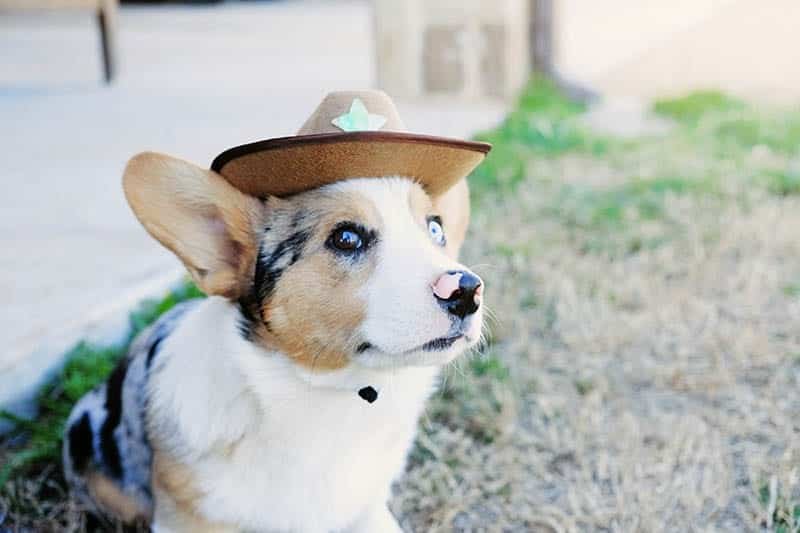
Food and Diet of Cowboy Corgi
It can be overwhelming to decide which food will work best for your Cowboy Corgi. Here are some things you should look for when selecting the right food:
• High-quality protein sources (such as chicken, beef, and fish) as the first ingredient
• Whole grains (such as brown rice or oats) as the second ingredient
• Healthy fat sources (such as flax seed or olive oil)
• Nutrient-rich vegetables and fruits
• Added vitamins and minerals such as calcium, zinc, vitamin E, and more
You also want to ensure the food is free from harmful ingredients such as artificial colors and flavors. Additionally, consider feeding your Cowboy Corgi a grain-free diet if they have specific allergies or sensitivities.
Creating a Balanced Diet for Your Cowboy Corgi
Once you’ve chosen the right food for your Cowboy Corgi, creating a balanced diet that meets all of its nutritional needs is important. The best way to do this is by feeding them small meals throughout the day instead of one large meal. This will help keep their energy levels consistent throughout the day and ensure they don’t become overweight due to overeating. It’s also important to ensure that your Cowboy Corgi gets plenty of exercises since they are an active breed of dog. Exercise not only helps keep them healthy but can also help keep their weight in check.
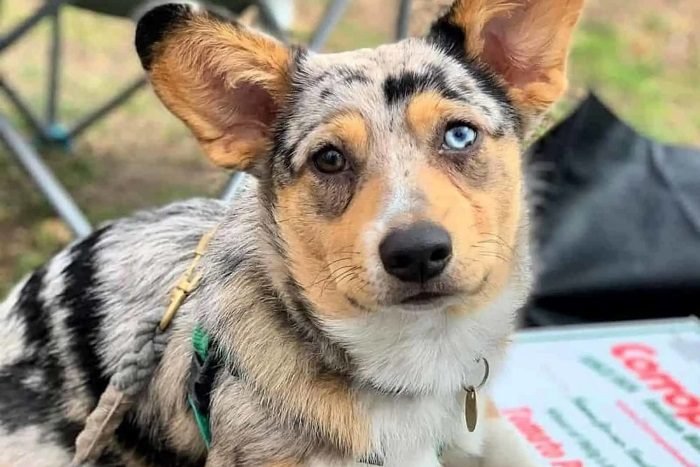
The Lifespan of Cowboy Corgi
On average, Cowboy Corgis have a lifespan of 12 to 15 years. This can vary depending on factors such as diet, exercise, and genetic health issues that may be passed down from their parent breeds. These pups are very hardy and healthy dogs with few medical complications. However, it’s important to take note of any potential issues if your puppy does come from a pedigree line.
Common Health Issues of Cowboy Corgi
Skin Allergies
One of Cowboy Corgis’ health problems is that they are prone to skin allergies due to their thick coat, which traps dirt and debris close to their skin. If your pup suffers from allergies, you must keep them clean with regular grooming sessions and provide them with an appropriate diet that reduces inflammation in their body, such as omega fatty acids or other anti-inflammatory supplements, if your vet recommends. Additionally, avoid using harsh chemicals on their skin which could further aggravate any existing allergies they may have.
Hip Dysplasia
Hip dysplasia is another one of the health concerns of Cowboy Corgis. It affects the hip joints and can cause pain and limited mobility in affected dogs. It is an inherited disorder caused by the misalignment of the hip joints, leading to decreased range of motion and pain. The best way to prevent this condition is through proper nutrition and exercise. Avoiding obesity will also help reduce the risk of hip dysplasia.
Eye Conditions
Cowboy Corgis can suffer from various eye conditions, including glaucoma, cataracts, dry eye syndrome, progressive retinal atrophy (PRA), corneal dystrophy, and entropion. Regular eye exams are essential to control these conditions, as early detection can make all the difference. You should also avoid exposing your pup to extreme weather conditions or bright lights, which could further damage their eyesight.

Cowboy Corgi Breeders
Finding the Right Breeder
When looking for a Cowboy Corgi breeder, find one with experience with this particular breed. You should ask for references from previous customers who have purchased dogs from them to ensure that they are trustworthy and reliable. Additionally, reputable breeders will provide access to genetic testing and health certificates to guarantee that their puppies are healthy and free from genetic disorders.
Another important factor to consider when selecting a breeder is their breeding practices. Reputable cowboy corgi breeders should have strict standards for the health and welfare of their animals, as well as responsible breeding practices such as ensuring that all parents are tested for any hereditary health conditions before allowing them to be bred. This will help ensure that their puppies are healthy and will live long lives with their new families.
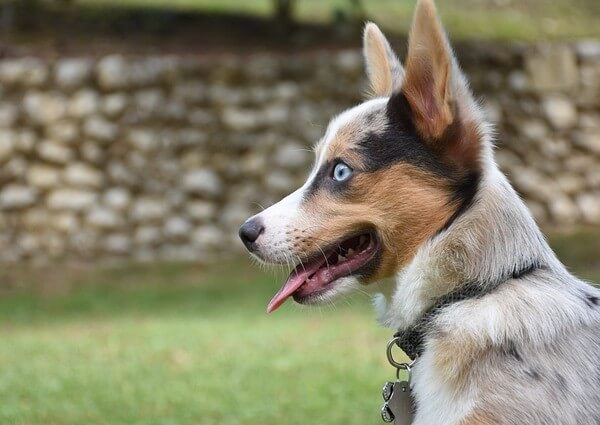
Where Can I Purchase a Cowboy Corgi?
Research Reputable Breeders
The first step in finding a reputable breeder for your Cowboy Corgi is to do your research. Take some time to look into different breeders who specialize in the hybrid type of dog and ensure they have good reviews from other customers.
Look into their breeding practices, including how much interaction their puppies have with humans before they go home with their new families. It’s also important to ask the breeder questions such as what health tests they perform on their dogs and what type of health guarantee they offer on their puppies. This will help ensure your new pup is healthy and well taken care of right from the start!
Make Sure You Visit
Once you’ve narrowed down your list of potential breeders, you must take the time to visit each before making any decisions about which is right for you. Visiting the breeder will allow you to get to know them and see how they interact with their puppies firsthand.
During the visit, ensure that all the puppies appear healthy and happy and that their living quarters are well-maintained and clean. Additionally, it’s always a good idea to bring along someone with you who has experience with dogs or breeding so that they can also provide another perspective on the situation.
Know What To Expect
Finally, when purchasing a Cowboy Corgi puppy, ensure you understand what is expected from both parties involved—the breeder included! Ask questions about spay/neuter requirements, vaccination schedules, socialization strategies, etc., so you know what is expected once your puppy arrives home. Be sure to get all information in writing so there are no misunderstandings later on down the line!
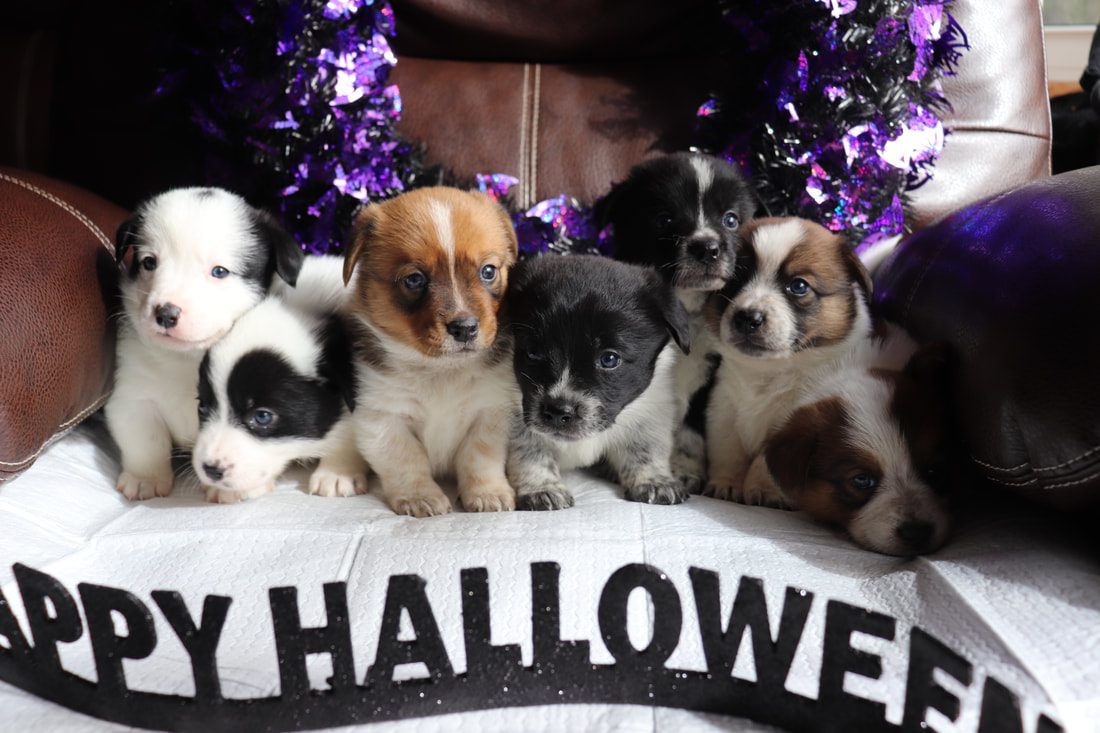
Cowboy Corgi Puppy Cost
The cost of a Cowboy Corgi puppy depends on whether you buy from a breeder or adopt from a rescue organization. On average, you can expect to pay anywhere from $2,000 – $2,800 for a healthy, purebred puppy from a reputable breeder. However, this price can vary depending on the puppy’s age, quality, and pedigree. It is also important to note that many breeders will not sell their puppies without spaying/neutering first, so be sure to factor in those additional costs.
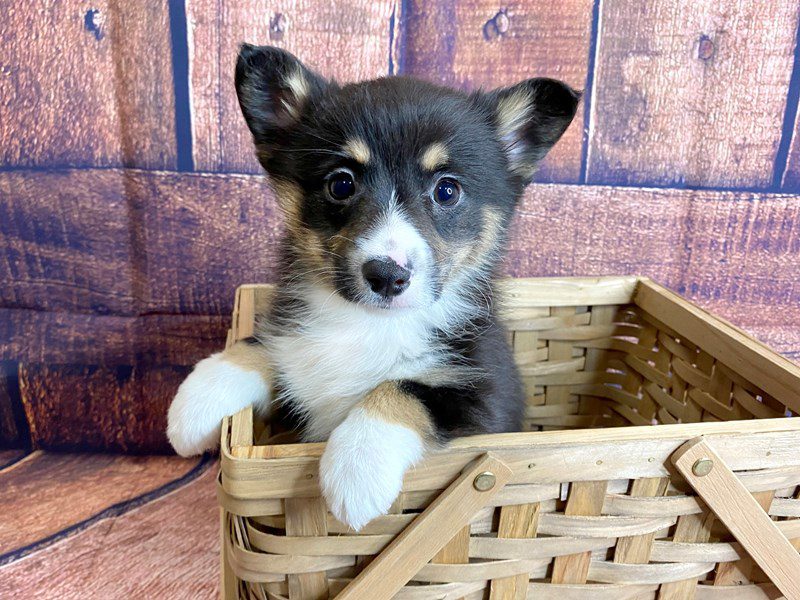
Do Kennel Clubs Recognize Cowboy Corgi?
A big reason why Kennel Clubs don’t recognize this hybrid dog is that its parents don’t come from pure breeds – which means that all puppies will have different qualities depending on their parents’ genetics. As such, it’s hard to guarantee certain traits or characteristics in puppies since they could take after either parent’s traits more than the other’s. This makes it difficult for kennel clubs to accurately assess these pups and determine which ones meet specific standards regarding temperament and health.
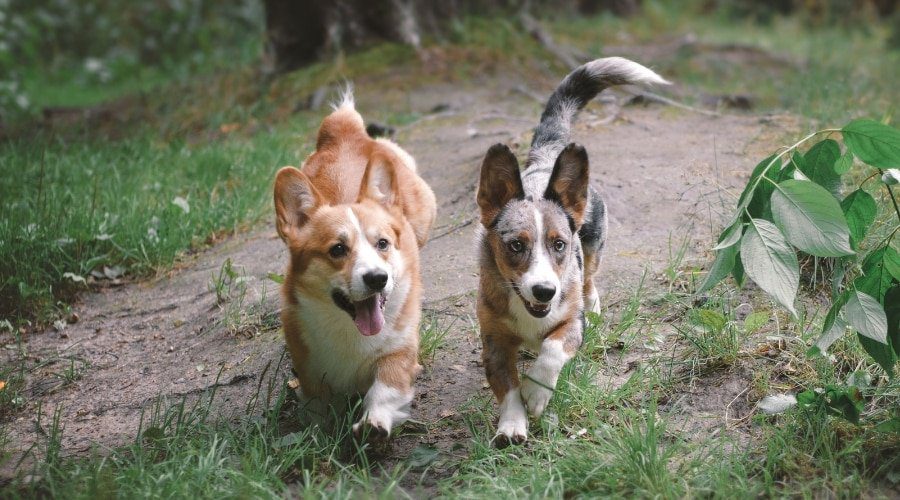
Final Thoughts
Overall, cowboy corgis are a great pet option for many families. They are loyal and friendly and make fantastic companions. They require regular exercise, grooming, and training to stay physically and mentally healthy; however, they can be easily trained with consistency and patience. In addition, they get along well with other animals and children when appropriately socialized.
Frequently Asked Questions
WHAT TWO BREEDS MAKE A COWBOY CORGI?
A cowboy corgi is a unique blend of two breeds – the Pembroke Welsh Corgi and the Australian Cattle Dog. This pup can also come with a specific coat coloration, which makes them one-of-a-kind.
WHAT IS THE DIFFERENCE BETWEEN A COWBOY CORGI AND A REGULAR CORGI?
The American Corgi is known for its distinctive merle coat, while the Cowboy Corgi boasts an eye-catching spotted pattern reminiscent of their Australian cousins. Both possess loyal and loving personalities – though you might be able to spot a difference from behind: where most breeds proudly wave with joyous tails, the cowboy corgi stands apart as it has none at all.
ARE CORGIS HYPOALLERGENIC?
A corgi may look cute and cuddly, but it’s not ideal for your household if you suffer from allergies or asthma. Like most furry friends, these dogs shed quite a bit of fur throughout the year, which can cause unpleasant allergy symptoms in those sensitive to dander.
IS A COWBOY CORGI A GOOD DOG?
Cowboy corgis are intelligent, loyal family companions that love being around people of all ages. With their small size and goofy personalities, they could easily thrive in a large family home or even a private adult household; as long as they can spend plenty of time outside getting fresh air with those closest to them.
WHAT IS THE RAREST CORGI BREED?
Originating from the 8th or 9th century, Swedish Vallhunds were bred with Welsh corgis to create this charming herding dog. This puppy-sized pup is surprisingly sturdy and full of personality, making them an excellent addition for anyone looking for a loyal companion.

